Published on: December 20, 2023 Updated on: February 14, 2024
Embracing AI Digital Marketing: Stand Out Against Competition
Author: Inge von Aulock

In the ever-evolving world of digital marketing, the advent of AI technology is a game-changer, heralding a new era of efficiency and effectiveness. We’ll explore the critical role of artificial intelligence in revolutionizing digital marketing, recommend the best tools available, and offer insights into how AI can significantly enhance Return on Investment (ROI).
AI has transformed the marketing landscape from basic automation to integrating sophisticated machine learning algorithms. AI in digital marketing is no longer a futuristic concept but a present-day reality, driving marketing strategies with unparalleled precision.
Top 5 Benefits of AI in digital marketing
The application of AI algorithms in digital marketing extends beyond mere data analysis to predicting customer behavior, optimizing marketing campaigns, and personalizing customer experiences. This shift is evident in various aspects of digital marketing, including content creation, social media marketing, and advertising campaigns.
1. Improved customer experience
AI empowers marketers to deliver highly personalized and targeted content to their audience. By analyzing vast amounts of data, AI algorithms can understand customer preferences, behaviors, and demographics.
This enables businesses to tailor their marketing strategies, creating individualized experiences that resonate with consumers. Additionally, AI tools can help you create life-like images, write the perfect ad text or blog post, and even deliver emails at the optimal time.
2. Strategic decision-making
One of the significant advantages of using AI as part of your digital marketing strategy is its ability to analyze data trends and provide predictive insights. Marketers can leverage AI-driven analytics to anticipate customer behavior, identify emerging market trends, and make informed decisions.
This foresight allows businesses to allocate resources efficiently, optimize campaigns, and adapt real-time strategies.
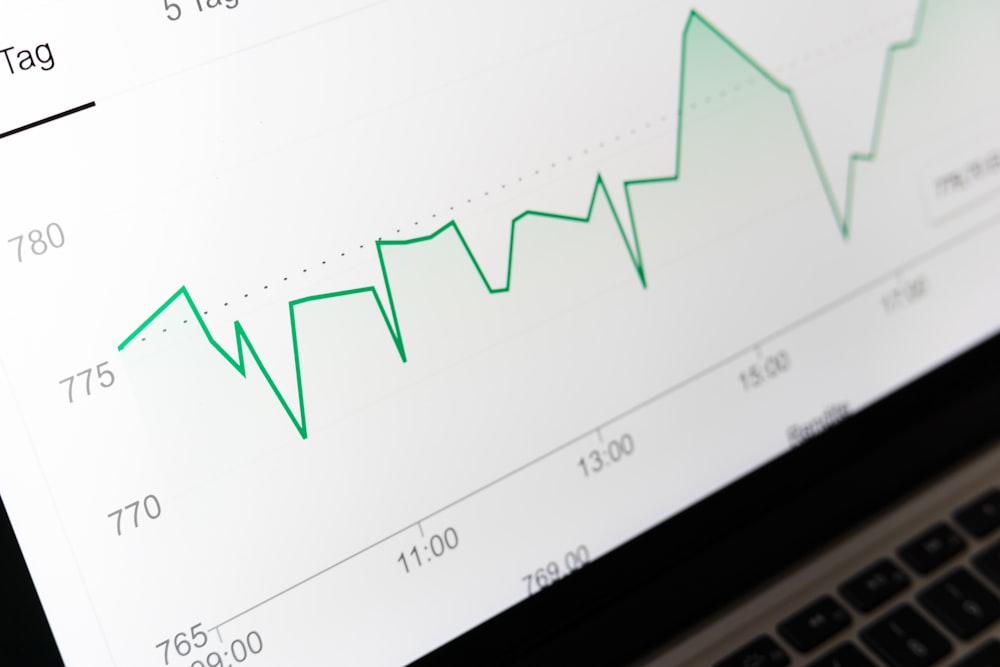
3. Enhanced efficiency
AI-powered tools, such as programmatic advertising and chatbots, streamline the advertising process, making it more efficient and cost-effective. Programmatic advertising uses AI algorithms to automate the buying of ad space, ensuring that ads are shown to the right audience at the right time.
Similarly, AI-powered chatbots enhance customer interactions, providing instant responses and support. These efficiencies lead to higher conversion rates and lower acquisition costs, positively impacting ROI. Plus, this technology frees up valuable resources so that staff can focus more on higher-level tasks, like developing and overseeing marketing campaigns.
4. Scalability
AI-driven marketing automation tools enable businesses to scale their operations without compromising on the quality of engagement. From lead nurturing to email marketing, AI automates repetitive tasks, also freeing up time to work on more strategic initiatives.
This not only saves time and resources but also ensures consistent and targeted communication across various channels, contributing to a more efficient and scalable marketing strategy.
5. Data-driven insights
AI excels in analyzing huge amounts of data to derive actionable insights. By leveraging AI-powered analytics, marketers can better understand campaign performance, customer behavior, and market trends.
These insights enable continuous optimization of marketing strategies, ensuring that efforts are aligned with evolving consumer preferences. What might normally take a person days or weeks to analyze, AI can have done in mere minutes.
AI in customer segmentation
Harnessing artificial intelligence’s power can significantly amplify the outcome of customer segmentation. No longer is it about merely grouping customers based on basic demographic, geographic, or behavioral data. AI presents a more dynamic, nuanced approach by accounting for multitudes of complex data points to derive precise customer groups.
It performs intricate pattern recognition to identify clusters of similar customers that go beyond conventional categorization criteria, potentially unlocking the elusive ‘segments of one.’
These data points could range from purchase history and product preferences to browsing patterns and social media interactions. Then, AI can match customers to highly personalized marketing offers. This increased granularity leads to better customer experiences, which inherently translates to improved customer loyalty, satisfaction, and, ultimately, revenue.

Amplifying customer segmentation through AI
AI’s potent machine learning algorithms are spearheading a revolution in customer segmentation. The sheer capability of AI to process voluminous and complex data sets expedites customer segmentation. Leveraging AI not only simplifies the process but also reduces human errors, leading to more accurate and efficient customer segmentation.
AI pushes the boundaries of traditional customer segmentation by incorporating predictive data analysis. This enables an anticipatory approach in customer targeting wherein AI predicts future behaviors based on historical data. Near-real-time data processing with AI allows for swift, proactive marketing decisions.
Real-world examples
The transformative impact of AI in customer segmentation is not merely theoretical. Many industry leaders are actively using it. Here are a couple of examples.
Amazon: Amazon’s recommendation system is a perfect example of efficient customer segmentation aided by AI. It crafts personalized purchase suggestions based on users’ past behaviors and similar customers’ patterns. This predictive customer segmentation strategy has notably increased their customers’ purchase rates, bolstering their revenue in the long run.
Spotify Spotify’s Discover Weekly feature, powered by AI, is another prime example. It creates a customized playlist for each user by segmenting them based on their music tastes and listening habits. This enhances the overall user experience and drives user engagement, retention, and loyalty.
10 AI tools that can boost your digital marketing ROI
Now that we know why you need AI in your marketing efforts, let’s look at which marketing tools offer the best bang for your buck (and your time). Here are 10 of our favorite options:
1. Brandwatch
We start off our list with a company that’s been around since 2007, which is somewhat rare in the AI game. Brandwatch is a fantastic tool to help you with most of your marketing needs. It uses its large data set gathered over the years to search for keywords, analyze all your social media platforms at once, and do market and competitor analysis. It also excels at spotting and predicting marketplace trends.
Some notable features include integration with Chat GPT, a writing feature that helps create engaging content, and collaboration to manage teams, campaigns, workflows, and your channels.
Plans: There are three plans available – Consumer Intelligence for analysts and researchers, Social Media Management for a social media focus, and Influencer Marketing for content influencers. The plans’ costs are customizable, so you’ll need to contact Brandwatch for quotes.
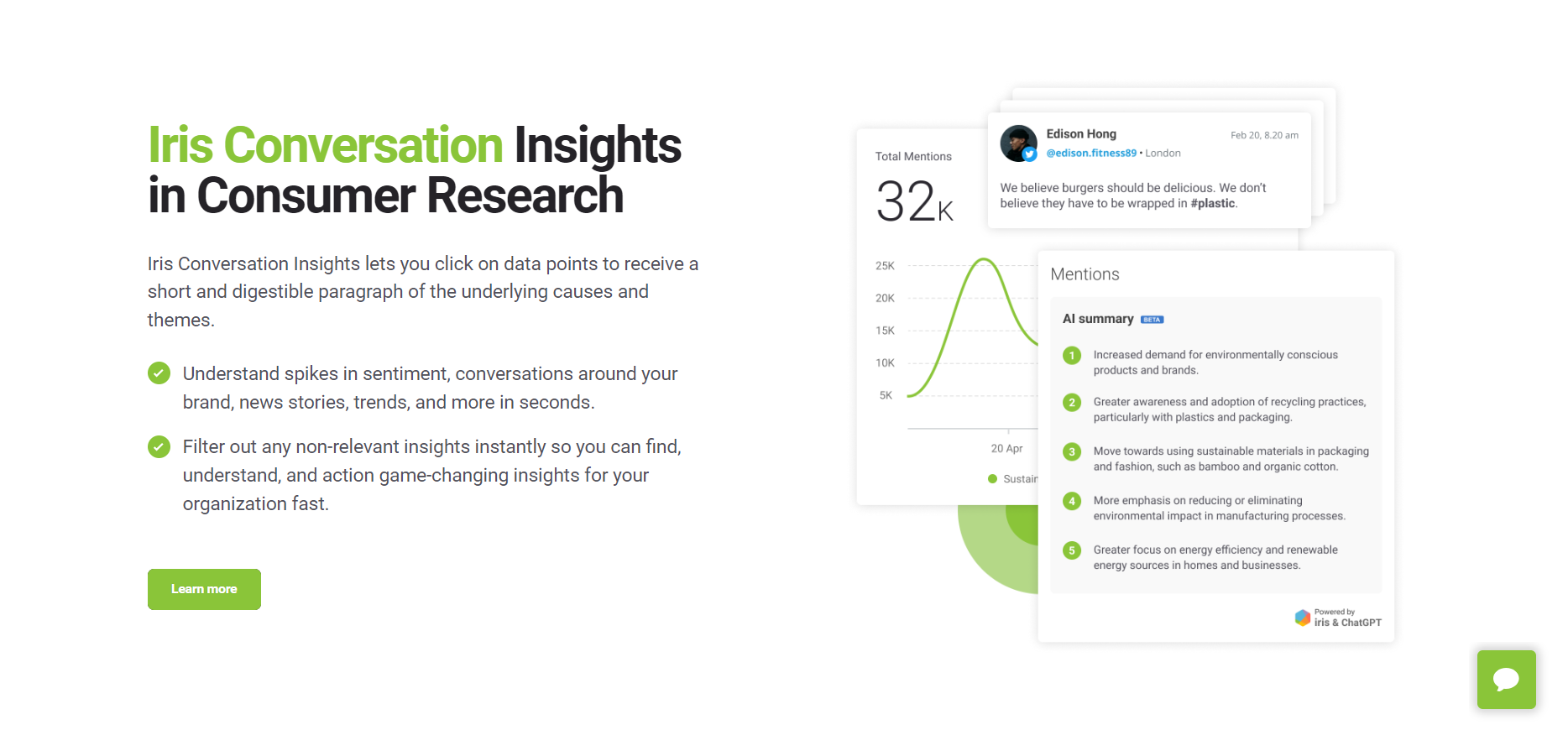
2. Penfriend
The key to grabbing customer’s attention is in the content you put out there. When you want an AI-powered writing assistant that will wow you, check out Penfriend. With Penfried, you won’t get the sometimes repetitive text of Chat GPT, and the platform will guide you through the entire creation process – from title creation to outlines to the final copy. Penfriend is user-friendly, and all you need to get started is a couple of relevant keywords, and the tool will take it from there.
Plans: Penfriend is an ultra-new AI offering, so specific plans are not yet available. The system operates on a simple credit system where one credit = one post.
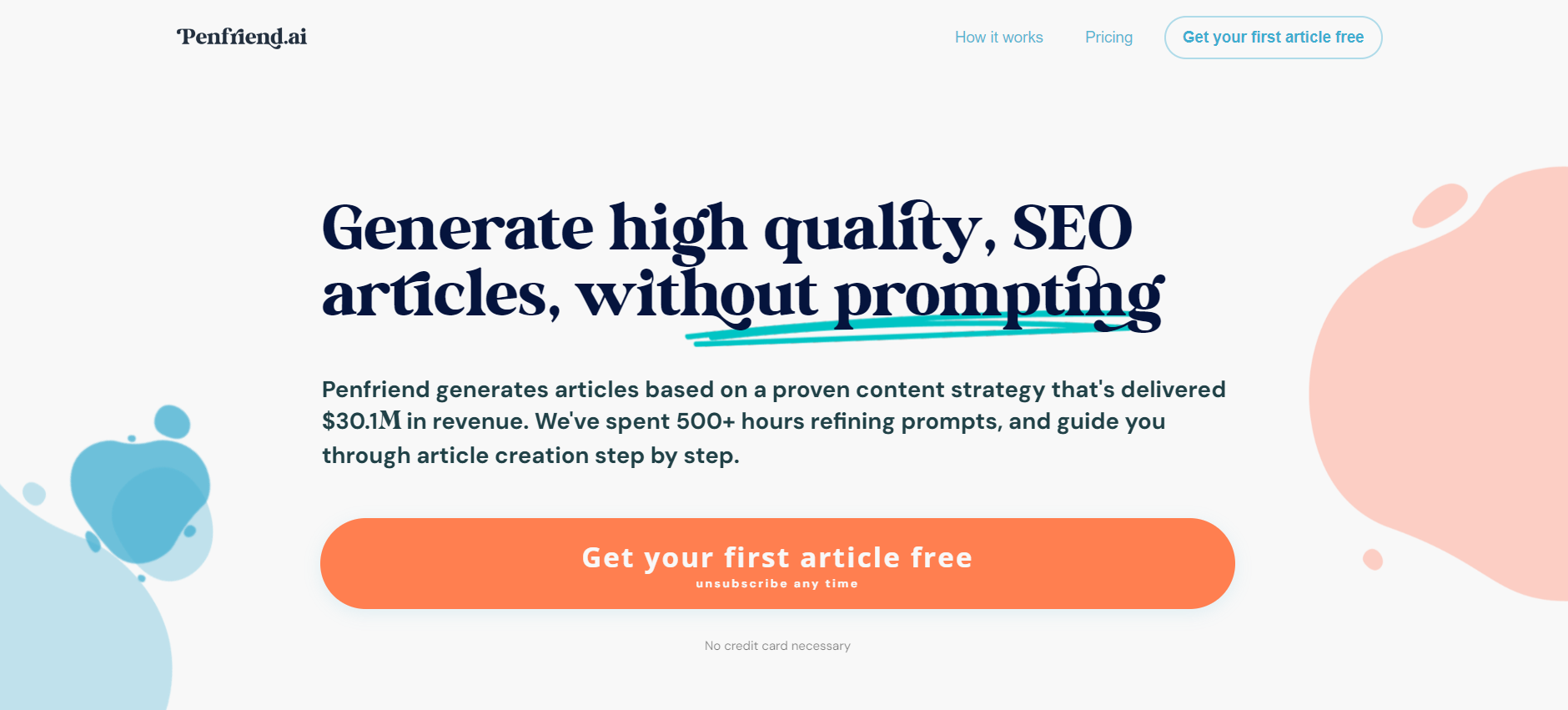
3. GrowthBar
When you need SEO, blogging tools, and competitor research, GrowthBar may be your AI tool. This platform is easy-to-use, affordable, and generates blog outlines, meta info, and topics for top-notch content.
Ideal for smaller businesses and bloggers just getting started, GrowthBar will suggest keywords, links, images, and even the exact word count for your post. If you don’t have much experience creating your own SEO-centric content, consider a 7-day free trial at least. You can try out the blog audit, keyword research, and paragraph generation options without spending anything. Using GPT-4 technology has never been easier!
Plans: The plans range from Standard, which is $79 per month, to Pro, for $139 per month, to Agency, for $249 per month. The company often runs promotions, and at the time of writing, up to 50% of these prices is available.
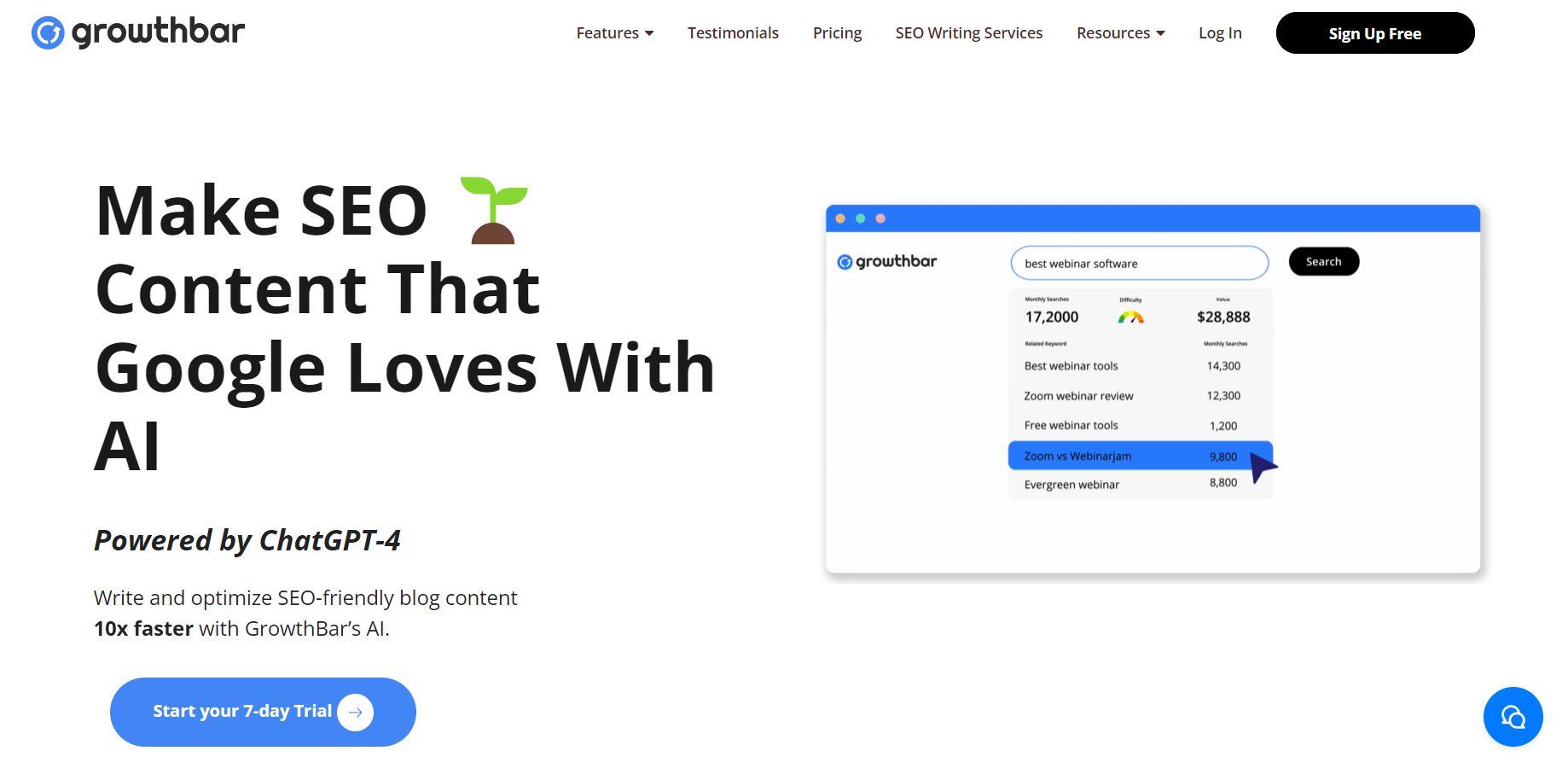
4. Marketing Strategy Generator
The name of this AI-powered tool really says it all. If you need help with generating engaging and impactful marketing strategies, you’ve come to the right place. The platform allows you to create a strategy in 5 minutes or less. It helps you drill down into segments like understanding your customers, defining your value, determining pricing, and personalizing marketing campaigns.
Plans: Marketing Strategy Generator is flexible in that you can create a one-time strategy for $69 or go with unlimited strategies for a one-time payment of $199. The nice thing is that you won’t be signing up for recurring monthly charges in either case.
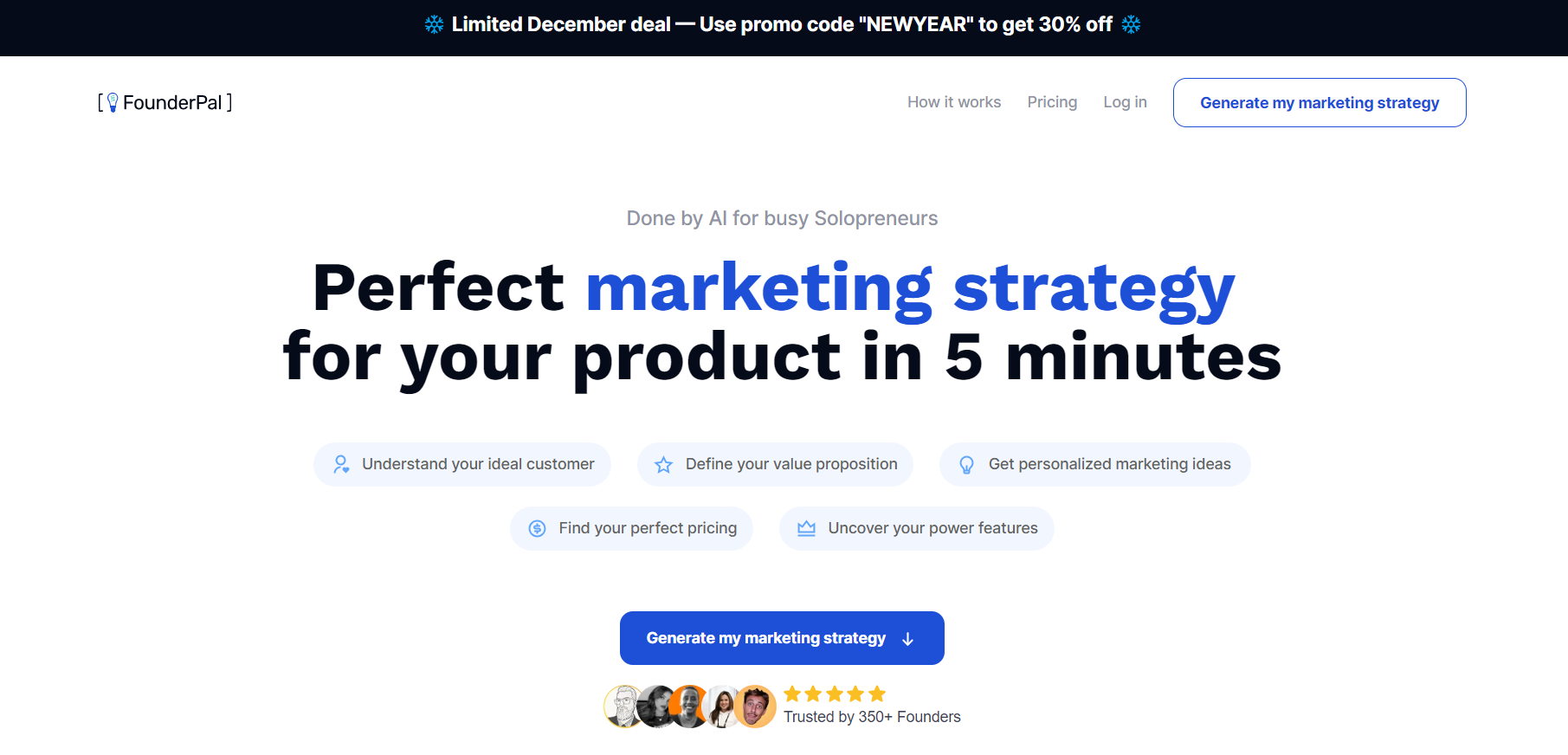
5. Optimove
Optimove is a great AI marketing tool when analyzing advertising campaigns, segmenting your customers, and doing A/B testing. The platform can track multiple channels at once and offers a unified view to keep things simple. Optimove uses Optibot to mine data and then provides real and actionable insights for marketers. If a campaign isn’t working, it’ll let you know. If you’re bombarding customers with too many ads or information, it can tell you that, too.
Plans: Optimove has three plans to choose from: Build, Grow, and Scale. The plan titles are indicative of how they can help you, and to get pricing, contact them directly. Some higher-level features, like segmentation, are only available in the most expensive plan.
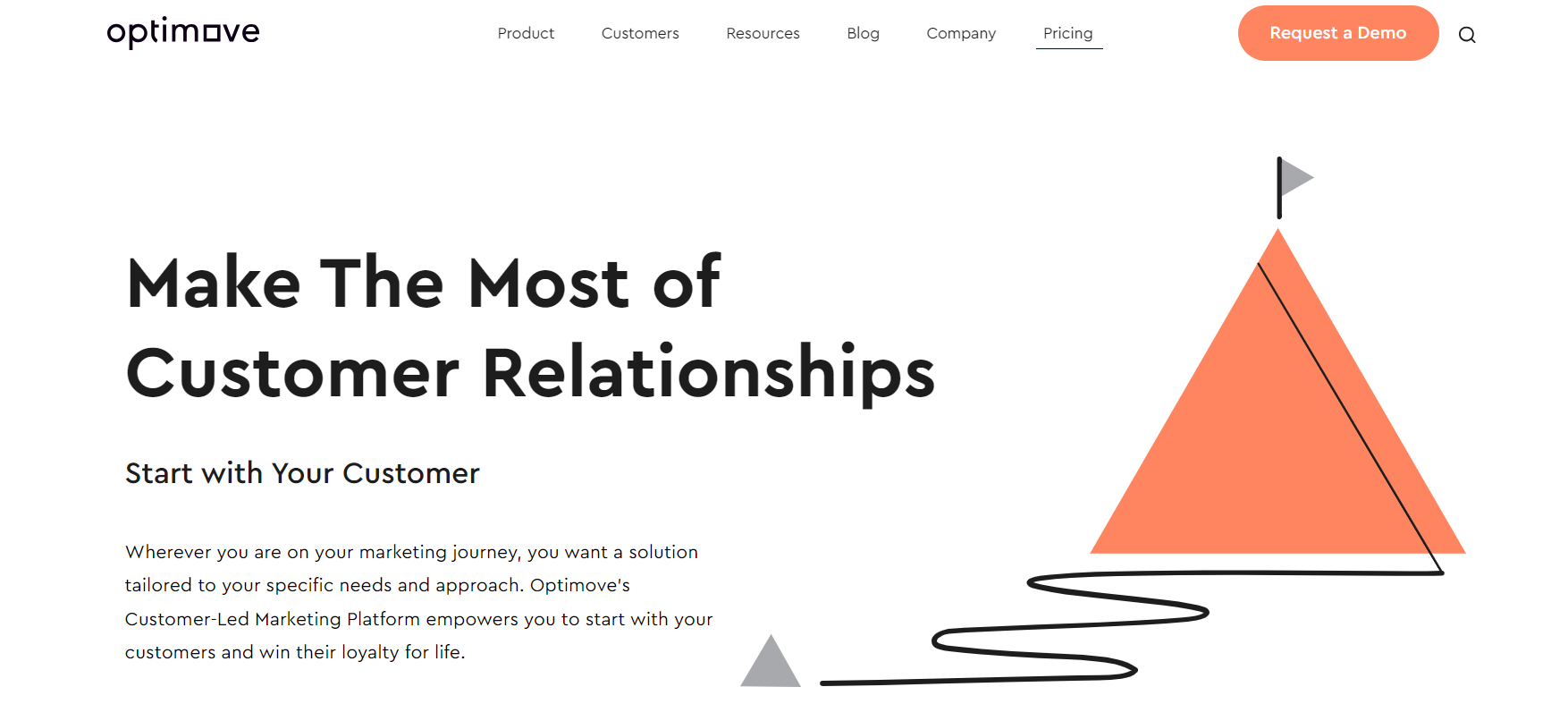
6. FeedHive
Billed as a social media assistant, FeedHive lives up to its name. Are you spending too much time creating and managing your social media content? This AI tool can simplify that. It’s easy to scale up from your current output and even recycle old content while keeping it fresh and not repetitive. Another exciting feature is conditional posting, where you can set up parameters, and the platform will take your desired action if conditions are met. Maybe you want to see if a single post does well and publish other similar ones if it does. With FeedHive, if your initial post reaches the minimum number of views you set, it will release the additional posts.
Plans: FeedHive has four plans ranging from the $29 per month Creator Plan to the $299 per month Agency Plan. Chances are, the Business Plan for $99 is the right fit.
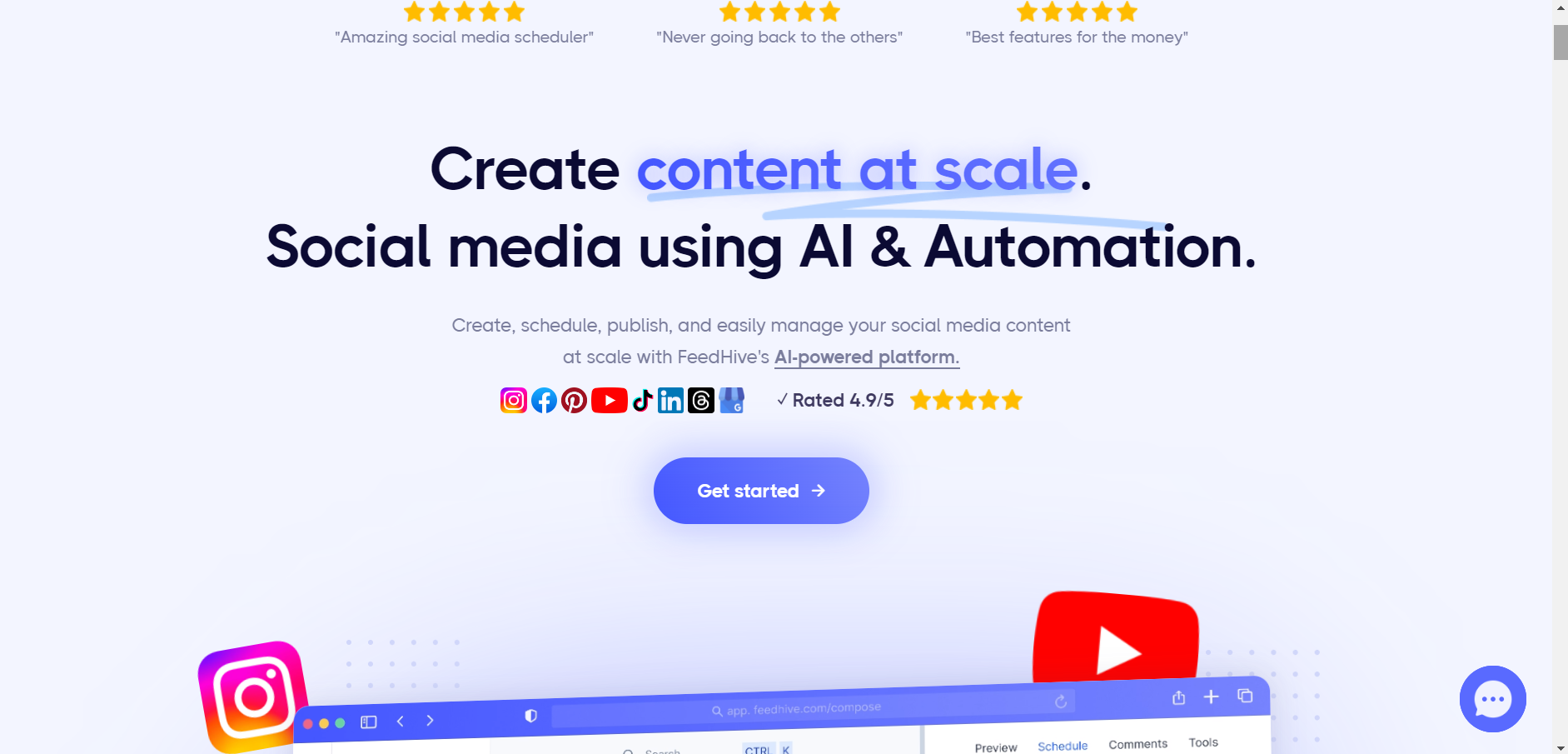
7. Seventh Sense
Seventh Sense is another AI-based marketing campaign platform that allows you to customize email campaigns and event-triggered actions. The digital marketing AI tool also provides robust reporting and analytics features to ensure your communications are delivered at the ideal time. Seventh Sense works with Hubspot and Marketo only, so do keep that in mind.
The results you can expect from Seventh Sense include increased deliverability, frequency optimization, and higher conversion rates.
Plans: For use with Hubspot, the Business Plan is $64 monthly if you pay annually and includes 5,000 leads. With Marketo, it’s much higher at $360 per month, paid annually, but that includes 50,000 leads.
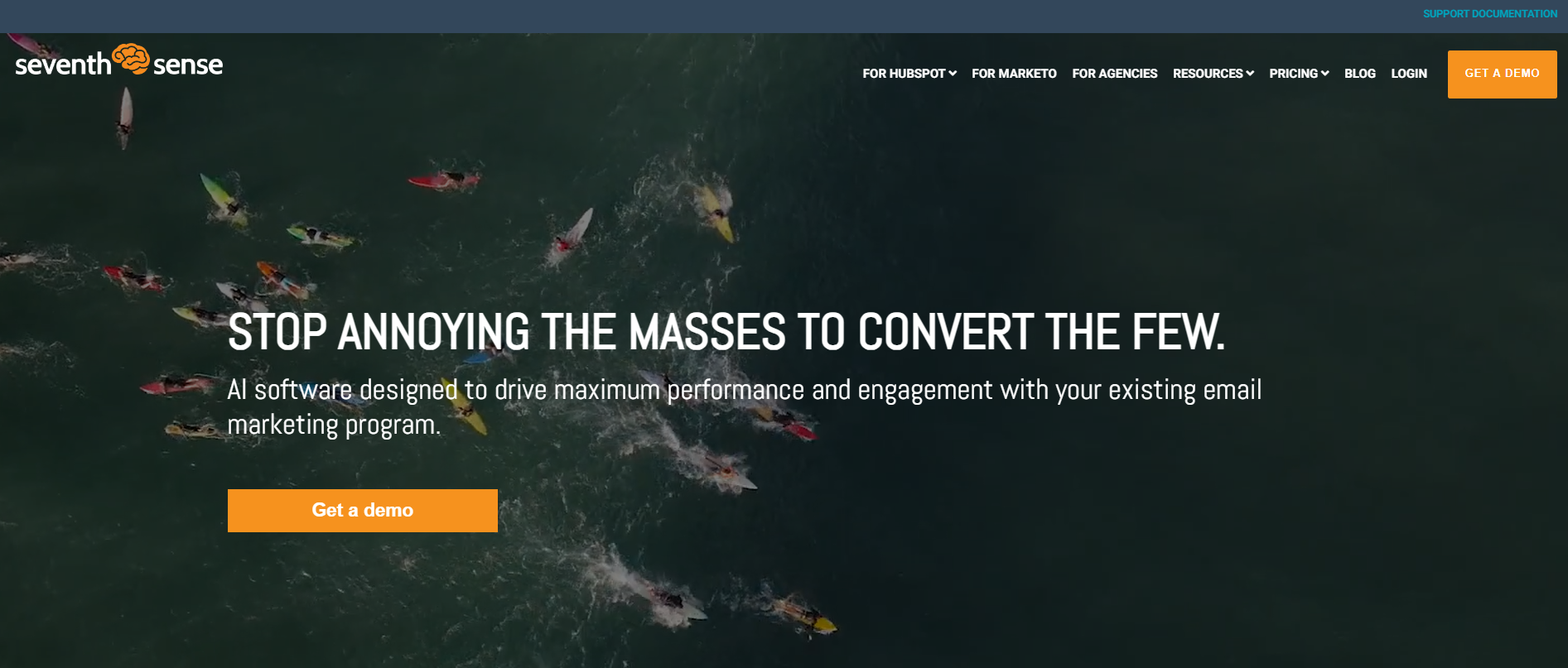
8. DeepL
Language translation can be an issue for businesses that operate worldwide – especially accuracy. With DeepL, AI technology translates entire documents into multiple languages you set. The key here is that the platform can add the subtle nuances needed for copy to sound natural and doesn’t just translate word-for-word (although it does that, too). Currently, there are 31 languages to choose from.
Plans: To see if this is the AI tool for you, a free plan allows up to 3 translated documents per month. Plans go up to $68.99 per month for the Ultimate, but most users tend to choose either the Advanced for $34.49 or the Starter for $10.49. There are discounts from these rates if you’re willing to pay annually as well.
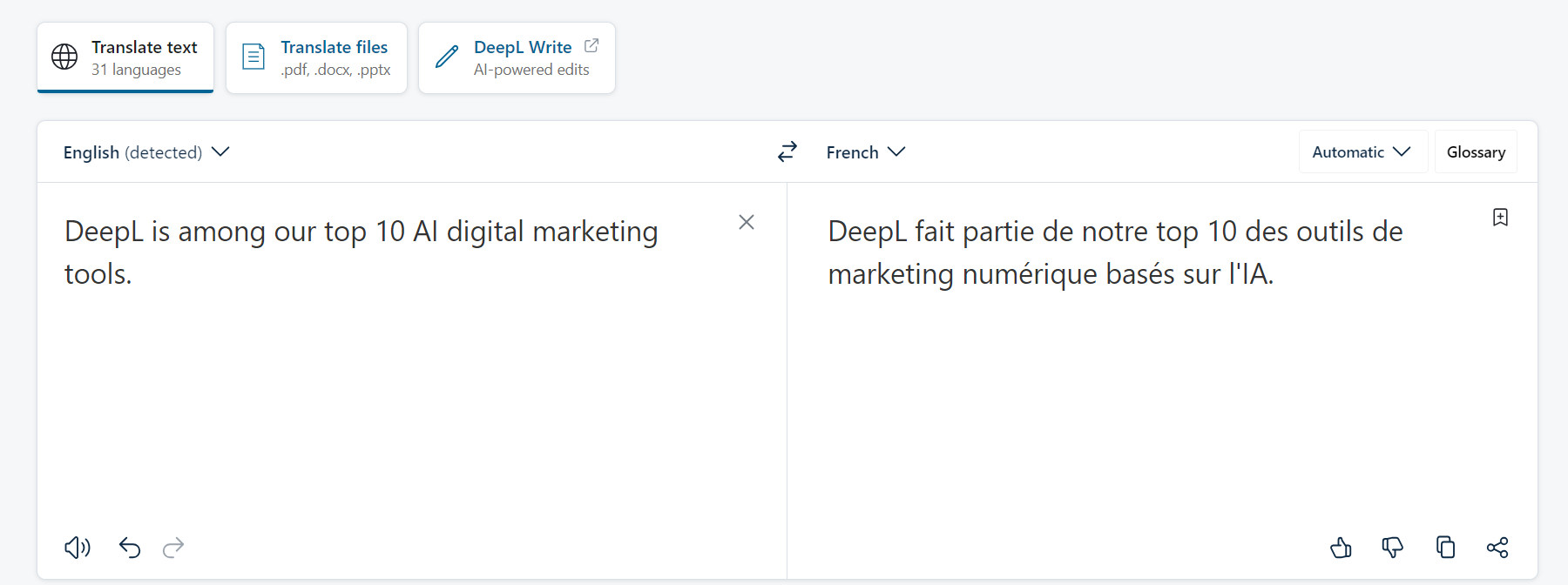
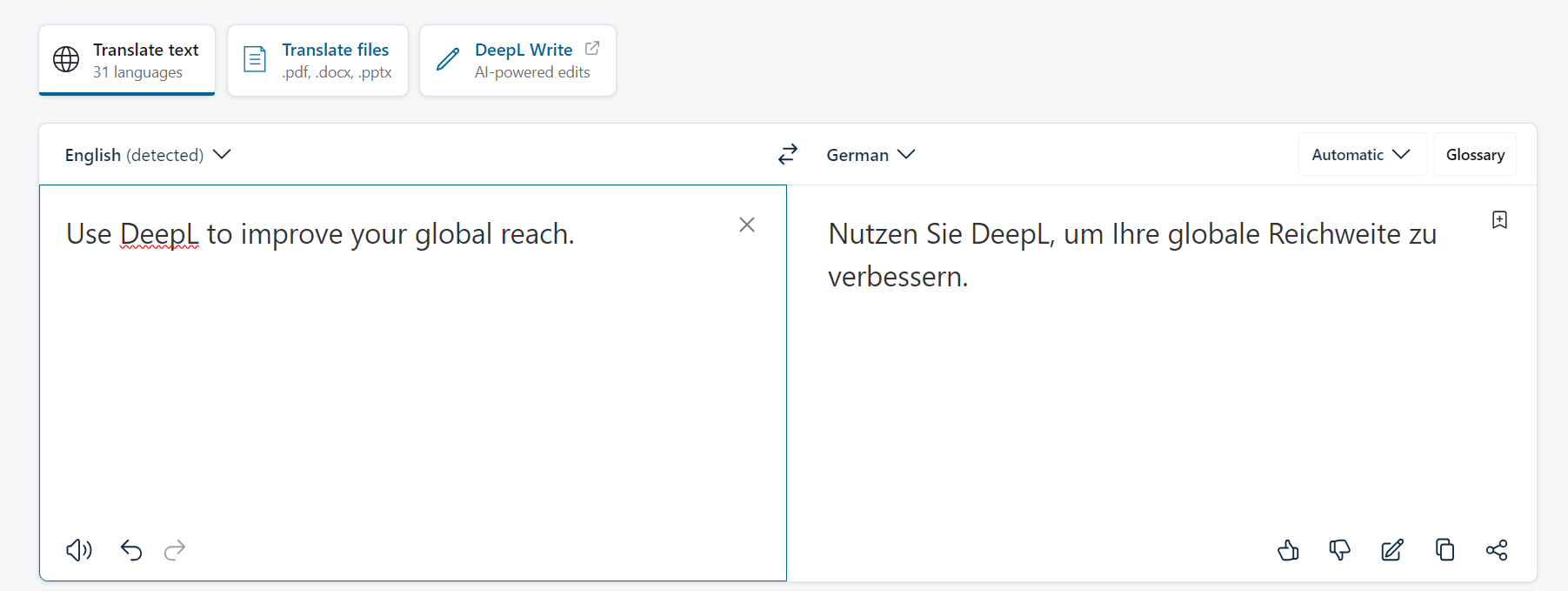
9. SurferSEO
When you want to create content that Google can’t resist, SurferSEO is an ideal partner. The platform has multiple features, starting with a content editor where you input a few keywords, and the system generates a plan for your post. This includes everything from the word count to the number of images and the frequency of keyword usage. The result is a finished post that’s SEO-friendly and should be seen by many new customers. If you need guidance to craft your content, Surfer has you covered.
If you’re more of a hands-off person, Surfer also uses AI to create articles and posts entirely, so that will save you even more time!
Plans: The Essential AI Plan offers 60 AI-created articles and 180 content editor articles per year for $119 per month, billed annually. Advanced AI is $239 per month, doubles the AI articles and triples the content editor ones. Lastly, the Max AI Plain is stacked with 240 AI articles per year and 1080 content editor articles for $419. You also have the ability to customize by contacting them.
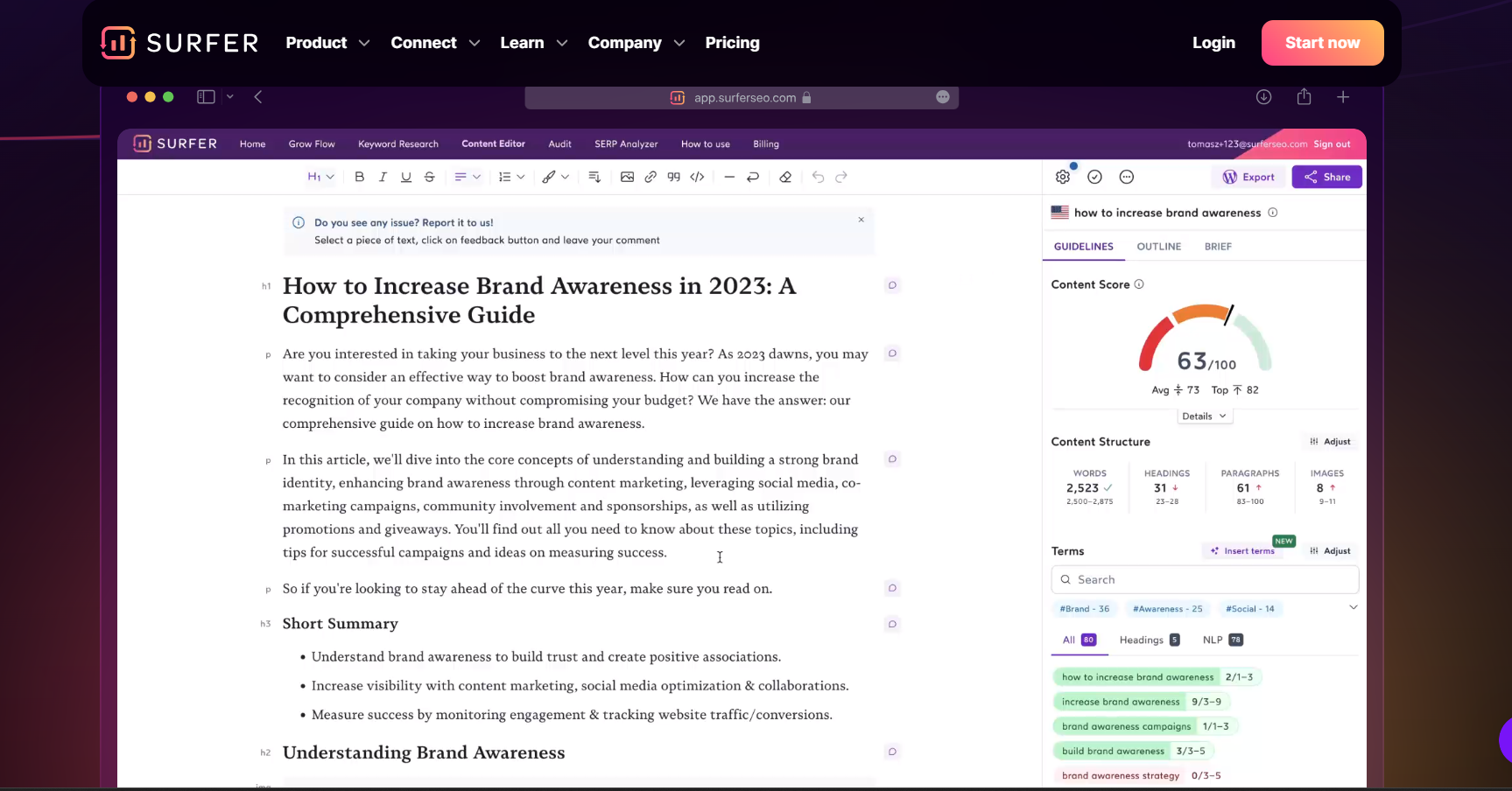
10. Smartly.io
Our last AI tool is one that helps you segment customers, scale your campaigns, and do testing over different channels. The campaign dashboard is easy to use, and the performance metrics will help guide your decisions. With Smartly, you can optimize and automate ad buys for time and cost savings as well. Some well-known brands who’ve had success with this platform include Uber, Ralph Lauren, Samsung, and Deliveroo. When you want everything in one straightforward place, go with Smartly – you’ll be in good company.
Plans: To get going on the platform, you’ll need to request a demo, and with that comes a custom quote.
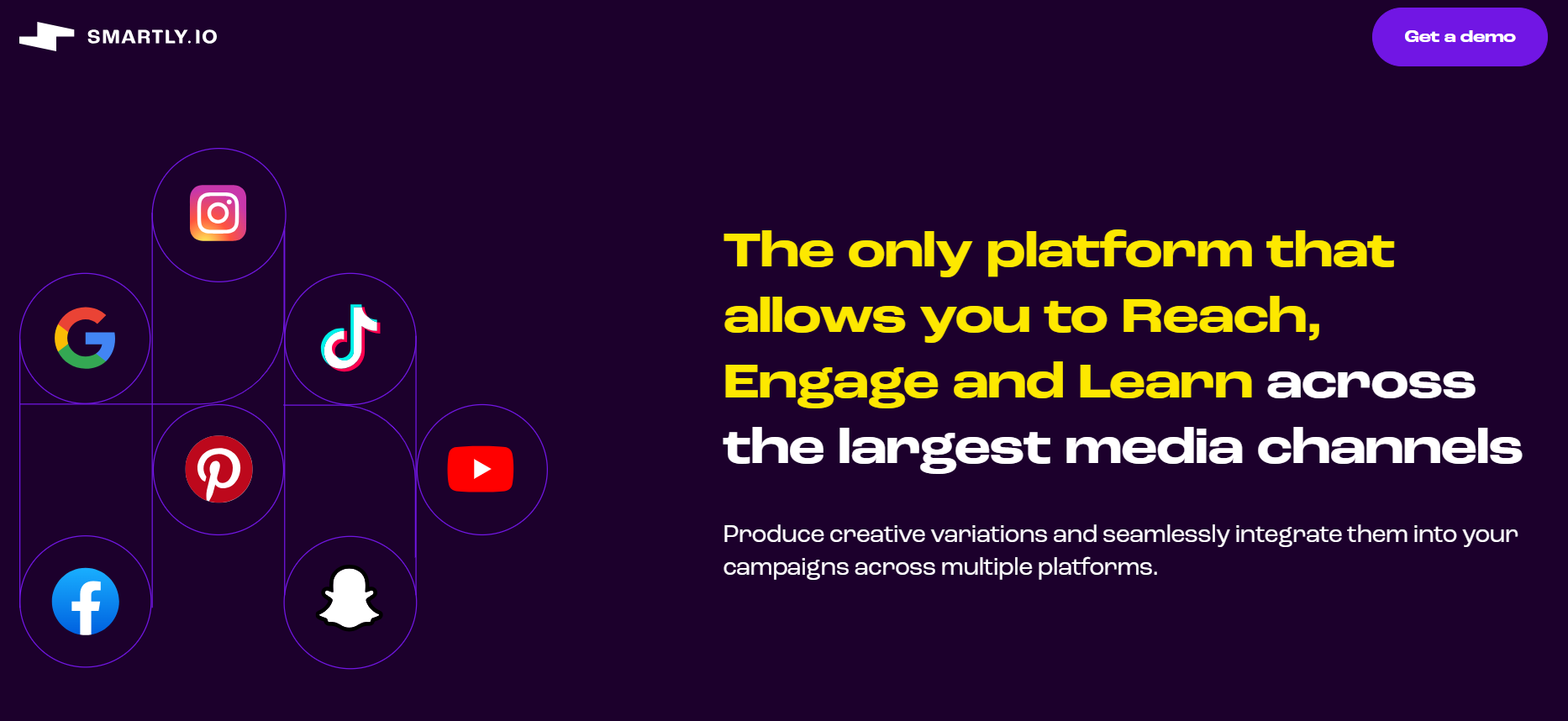
Real-world examples of successful AI-driven marketing strategies
AI has been successfully implemented in marketing strategies across various industries. Here are some real-world examples:
- Netflix’s recommendations algorithm: Netflix uses AI to analyze viewing patterns and suggest content to viewers. This personalized experience is remarkably successful, with the company reporting that 80% of watched content comes from algorithmic recommendations.
- Spotify’s discover weekly: This feature is a customizable playlist based on the user’s listening history. This AI-driven strategy has seen immense success, with around 40% of users engaging with the playlist.
- Starbucks’ mobile ordering system: Starbucks uses AI to analyze customer purchases and recommend personalized orders. This system has not only improved customer engagement but also increased mobile order and pay transactions.
The future of artificial intelligence in digital marketing
The future of AI in digital marketing is ripe with potential. From advancements in natural language processing to more sophisticated machine learning algorithms, it feels like there’s no stopping this technology.
Emerging trends and predictions
Market forecasts for 2023 and 2024 illustrate some compelling advancements in AI that are tipped to revolutionize the digital marketing sector even further. In the wake of an increasingly competitive online space, businesses anticipate further banking on AI’s potential to deliver more personalized experiences to consumers. This shift to hyper-personalization is set to encompass various elements such as tailored content creation, dynamic pricing, and highly individualized product recommendations.
Another key trend expected to dominate 2024 is the widespread adoption of AI-powered chatbots. With their unprecedented ability to streamline customer service and instigate real-time communication, AI chatbots are and will become an indispensable asset for businesses to enhance customer satisfaction and brand loyalty.
Another notable trend relates to AI’s more prominent role in data analysis. Its superior predictive capabilities and rapid processing power stand poised to help companies decode consumer behavior patterns and derive crucial insights, thereby transforming how marketing campaigns are strategized and executed.
Conclusion
The transformative power of AI is undeniable, and its integration into digital marketing is not just beneficial but essential for staying competitive in today’s market. From the ease of optimizing campaigns to hyper-personalized customer experiences, the marriage of artificial intelligence and digital marketing is one poised for longevity.
Having this wealth of knowledge isn’t just for show. It places you at the forefront of trendsetting marketers who acknowledge the exponential potential AI holds for the future. The ball is in your court to integrate AI into your marketing strategies for unprecedented growth.
Frequently Asked Questions (FAQ)
What is AI in digital marketing?
AI in digital marketing refers to using artificial intelligence technologies to automate, enhance, and personalize various aspects of marketing strategies. This includes data analysis, customer behavior prediction, content creation, and more, aiming to improve efficiency and ROI.
How does AI improve ROI in digital marketing?
AI improves ROI by enabling more targeted, efficient, and effective marketing campaigns. It analyzes vast customer data to gain insights into preferences and behaviors, allowing for more personalized and successful marketing efforts.
Are AI marketing tools suitable for small businesses?
Yes, many AI marketing tools are designed to be scalable and can be incredibly beneficial for small businesses. They can automate routine tasks, provide valuable insights into customer behavior, and help create more effective marketing strategies within a reasonable budget.
How can AI Tools help in content creation?
AI tools in content creation can assist in various ways, such as generating ideas, optimizing for SEO, ensuring brand consistency, and even creating content drafts. Tools like Penfriend and SurferSEO are examples that aid in enhancing the quality and effectiveness of content.
What are the ethical considerations of using AI in marketing?
Ethical considerations include data privacy, data usage consent, and AI-driven decision transparency. It’s crucial for businesses to adhere to ethical guidelines and regulations, ensuring customer data is handled responsibly.
Can AI replace human marketers?
While AI can automate and optimize many tasks, it is not a replacement for human creativity and strategic thinking. AI is best used to complement human skills, offering insights and efficiency improvements.
How do AI tools personalize customer experiences?
AI tools analyze customer data, including past interactions and preferences, to create personalized customer experiences. This can be through tailored content, product recommendations, or individualized communication strategies.
What should I consider when choosing an AI marketing tool?
Consider your specific marketing needs, budget, and the scale of your operations. Look for tools that align with your marketing goals and can integrate seamlessly with your existing marketing technology stack.
How does AI impact social media marketing?
In social media marketing, AI can help analyze user engagement, optimize content for better reach, automate responses in customer service, and provide insights into trending topics and consumer sentiments.
Are there any challenges in implementing AI marketing strategies?
Challenges include ensuring data quality, integrating AI with existing marketing systems, and effectively training staff to use AI tools. Overcoming these challenges often involves a strategic approach to technology adoption and staff training.
Inge von Aulock
I'm the Founder & CEO of Top Apps, the #1 App directory available online. In my spare time, I write about Technology, Artificial Intelligence, and review apps and tools I've tried, right here on the Top Apps blog.
Recent Articles

Microsoft servers are down. Your business grinds to a halt. Panic sets in. Stop. Breathe. You’ve got this. This guide gives you 7...
Read More
As a business leader, you’re always searching for ways to stay ahead of the competition. What about AI in marketing and sales? In...
Read More
Struggling to keep up with the competition in 2024? You’re not alone. Small and medium enterprises (SMEs) are facing a rapidly evolving business...
Read More